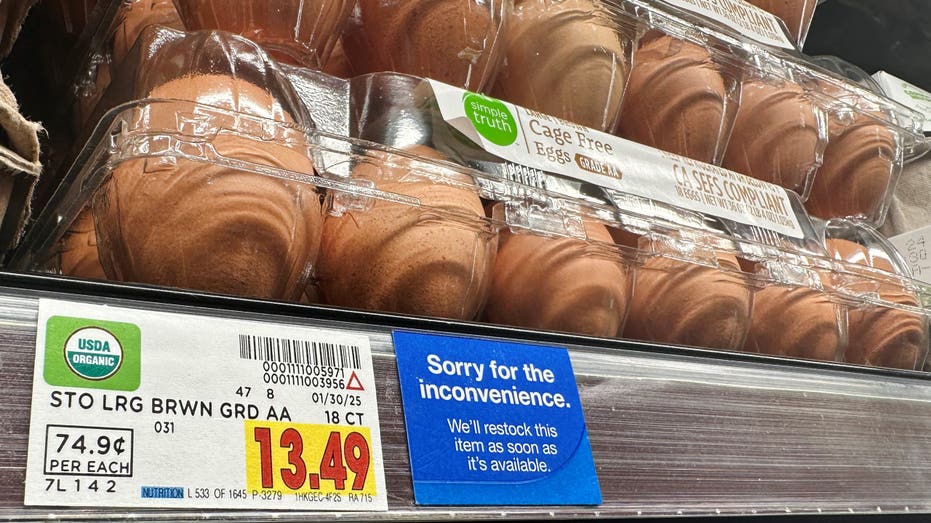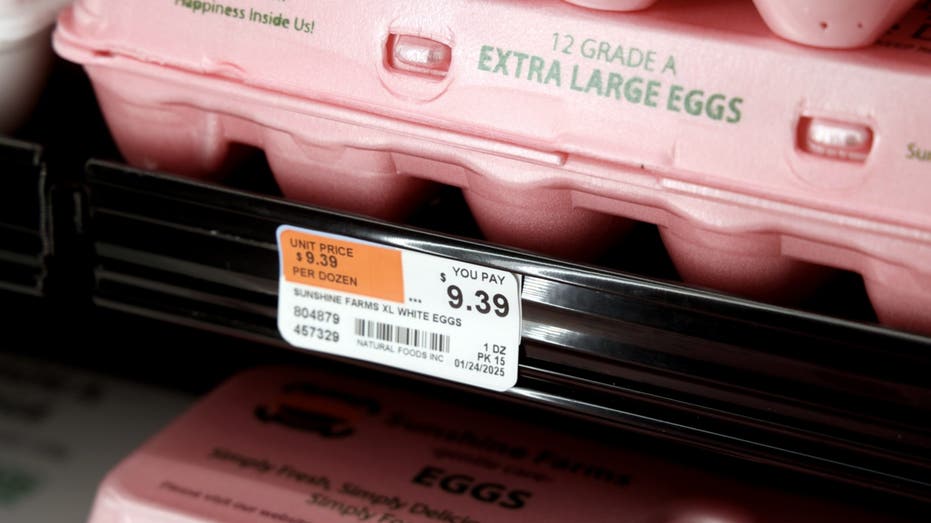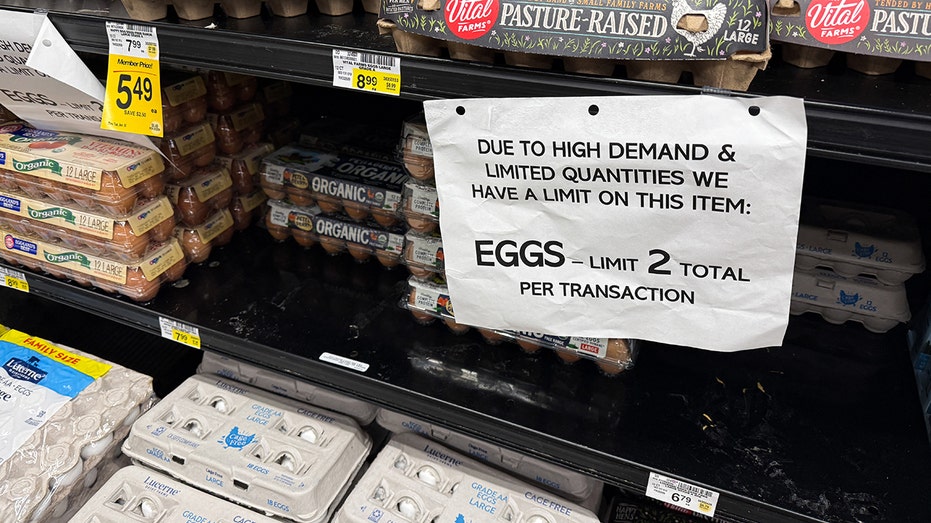A third of Americans stopped buying eggs; won't revert back until prices drop
More than 166 million birds have been affected by bird flu since 2022
Plant-based eggs gain popularity as prices soar
Eat Just CEO Josh Tetrick says the company is growing 'five times faster' today than last year on 'The Claman Countdown.'
Over 30% of Americans have stopped buying eggs due to their exorbitant costs, according to a study by Clarify Capital.
Many of them are holding off on the household staple until prices drop to at least $5 per dozen, according to the report, which surveyed 1,000 Americans. It's forcing consumers to figure out alternatives. For about 10% of them, that means leaning on egg substitutes such as plant-based eggs and flaxseed until the problem eases, according to the report.
The study compared the average price of a dozen eggs across all states, noting the significant jump in 2018, which was $1.49. Today, that figure is sitting at $5.18.
EGG PRICES PREDICTED TO JUMP OVER 40% IN 2025: USDA
According to the Labor Department's consumer price index, the cost of eggs increased by 58.8% year-over-year in February as the industry faces the compounding effects of consecutive Highly Pathogenic Avian Influenza (HPAI) outbreaks devastating the U.S. egg supply. Prices are also expected to jump over 40% in 2025, according to the USDA.
Clarify Capital CEO Michael Baynes emphasized the severity of the issue – which is now being investigated by the Justice Department – saying eggs have always been among the most affordable and basic grocery staples, "so when they get left off shopping lists entirely, it’s a sure sign that we're reaching a financial and emotional breaking point."

Eggs for sale at 74.9 cents each at a supermarket on Feb. 10, 2025 in Monterey Park, California. (Frederic J. Brown/AFP via / Getty Images)
"When staples such as eggs cost so much that they qualify as a luxury item in the average home, they put pressure on nutrition, on family budgets, and even mental well-being," Baynes told FOX Business. He believes that with prices remaining so high, "we may see permanent shifts in consumer habits and expenditures years after the inflation peaks."
FARMERS REACT TO TRUMP'S PLAN TO COMBAT EGG CRISIS
The U.S. Department of Agriculture (USDA) – headed by Secretary Brooke Rollins – announced plans to invest an additional $500 million in biosecurity measures, $400 million in financial relief for affected farmers and $100 million for vaccine research to combat the issue. The department is also looking to find ways to reduce regulatory burdens and explore temporary import options.

A carton of eggs at Holiday Farms on Jan. 28, 2025, in New Hyde Park, New York. (Howard Schnapp/Newsday RM via / Getty Images)
While farmers told FOX Business that this is an important step in solving this bird flu crisis, they say it will take time to see any significant impact. Prices will likely remain elevated until the egg supply increases enough to relieve market pressures.
Bernt Nelson, an economist with the American Farm Bureau Foundation, told FOX Business last month that there have been newly reported cases of bird flu in recent weeks, which is certain to exacerbate the issue.
GET FOX BUSINESS ON THE GO BY CLICKING HERE
Since the outbreak began in 2022, bird flu has affected over 166 million birds, including 127 million egg layers. This equates to an average loss of 42.3 million egg layers per year, or about 11% of the five-year average annual layer inventory of 383 million hens since the outbreak began, according to Nelson.

Sign posted at a grocery store in Manhattan Beach, California, on Jan. 2, 2025. (Patrick T. Fallon/AFP via / Getty Images)
As the situation persists, antitrust enforcers at the Justice Department are looking into the cause of rising prices, including whether egg producers have conspired to artificially inflate them by holding back supply, sources told The Wall Street Journal.





















